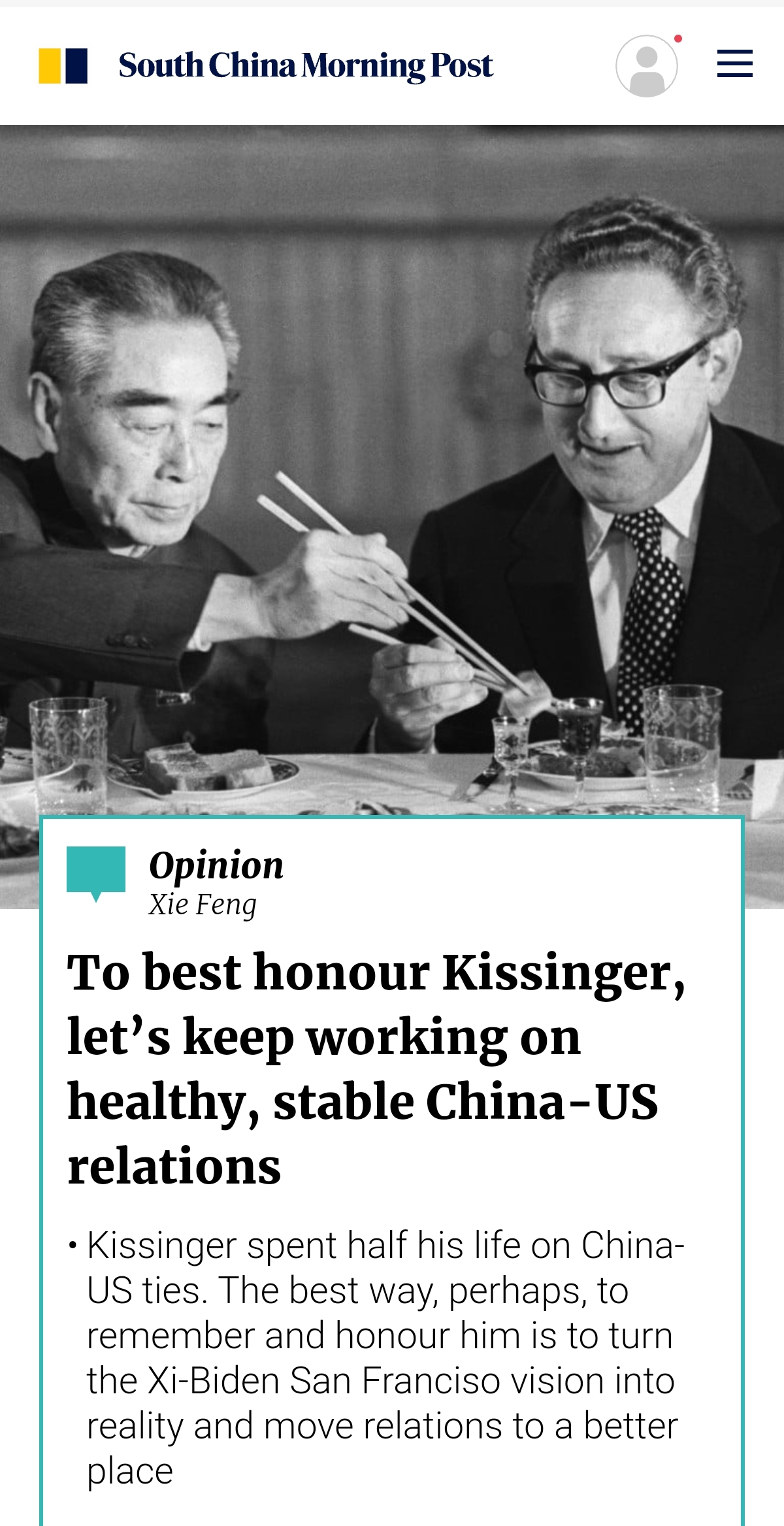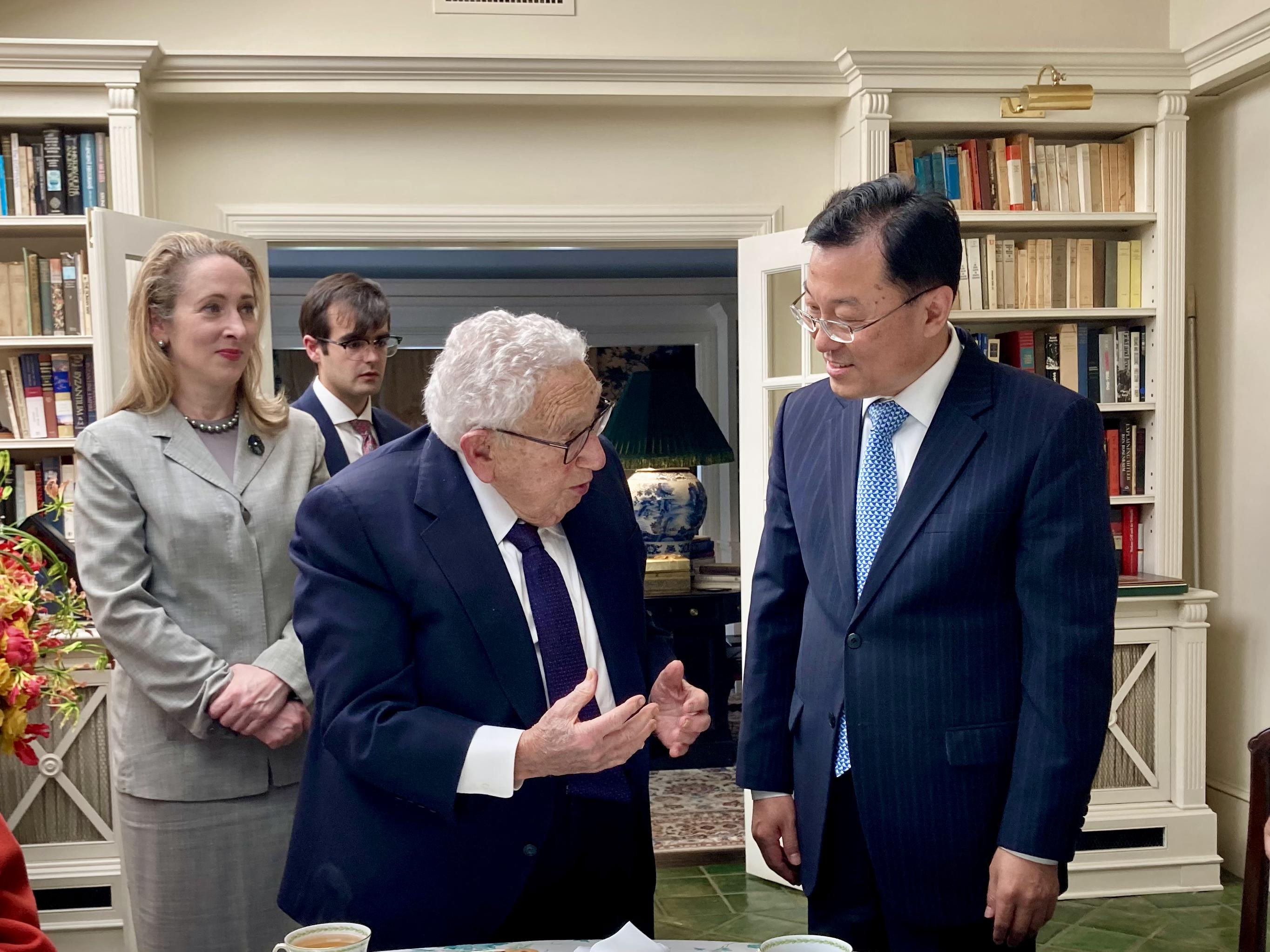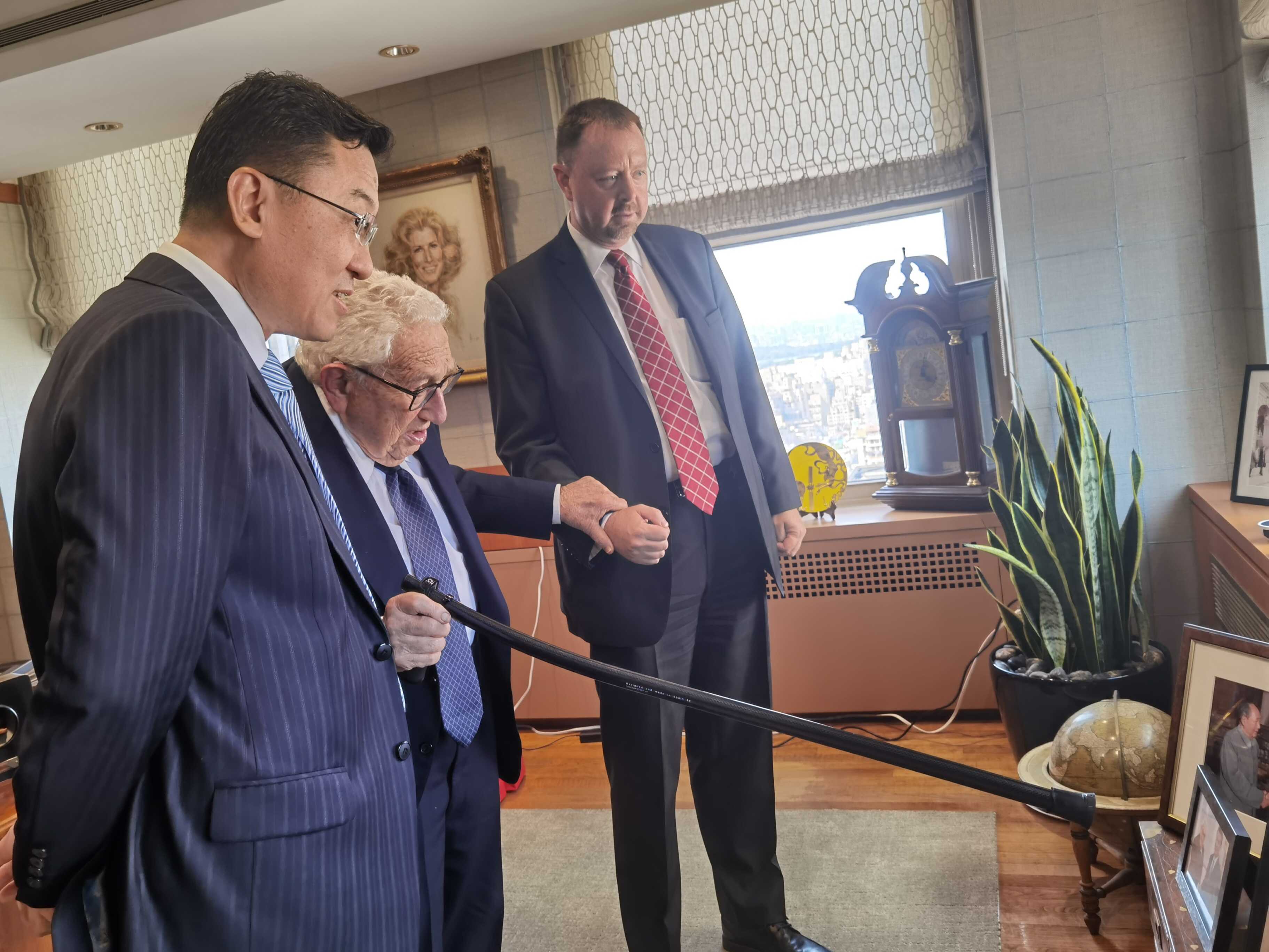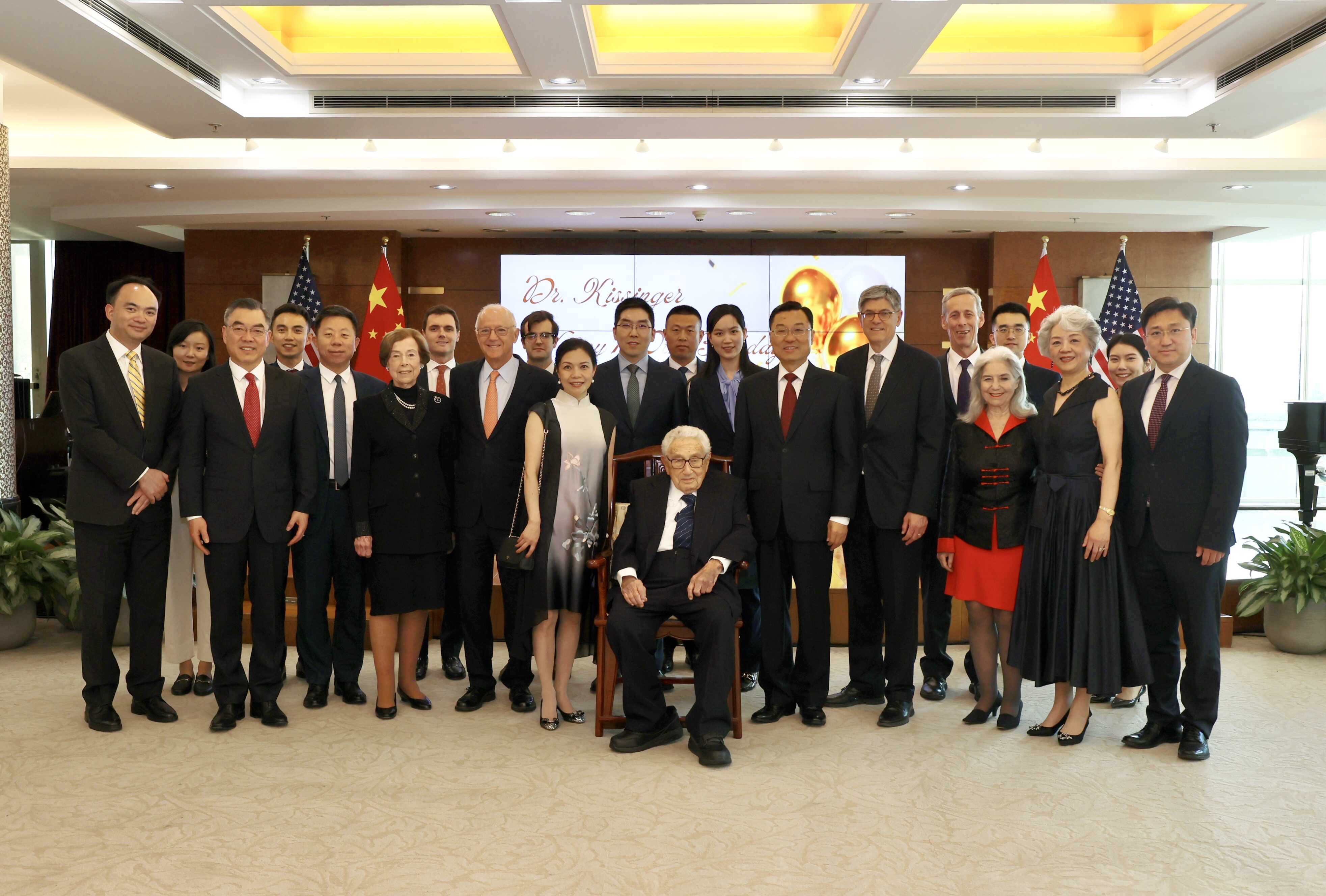
On December 3, the South China Morning Post published an article by Chinese Ambassador to the United States Xie Feng: "To best honour Kissinger, let's keep working on healthy, stable China-US relations." The article will appear in print on December 4. The full text is as follows:
I first came across Dr. Henry Kissinger's name in 1971. To a seven-year-old boy, it took some time for the radio news that Chairman Mao Zedong and Premier Zhou Enlai were meeting a "U.S. national security adviser Dr. Kissinger" to sink in. It was only later that I came to realize this was the start of the normalization of China-U.S. relations.
Ten years later, when I went to China Foreign Affairs University, "White House Years" was a must-read for me and my classmates. We had heated discussions on his thinking about the "balance of power" and his art of "minuets", which further aroused our interest in pursuing a career in diplomacy.
Since starting to work on China-U.S. relations in the 1990s, I had the privilege of sitting in on many of Dr. Kissinger's meetings with Chinese leaders. After my arrival in the United States as the Chinese ambassador in May, he was one of the first American friends I called upon. At his home in Connecticut the day before his 100th birthday, I conveyed President Xi Jinping's congratulatory letter. After that, I met him six more times. If only I could have done more.

Dr. Kissinger never failed to amaze me with his sharp wit. He was known as a quick study and deep thinker. An all-time favourite story is how his 383-page thesis caused Harvard to create the "Kissinger rule", limiting the length of all future undergraduate papers to 150 pages. And his philosophical vocabulary was always a challenge for our notetakers – the cute German accent did not help.
But that was how he had cultivated his strategic foresight. In the 1970s, when China and the U.S. were estranged from each other for 22 years, he and President Richard Nixon foresaw the changes of the times and forged ahead to reopen the door of China-U.S. relations together with Chinese leaders.
After leaving office, he continued to follow the relationship with keen interest, proposing a "co-evolution" paradigm for the two countries to coexist peacefully. In his 90s, he became obsessed with a very modern concern – the potentially disruptive implications of artificial intelligence, and had been ever since a most vocal advocate for China-U.S. dialogue and cooperation on AI.
He was a man of grit. As a patriot, he always had at the top of his mind America's national interests. But he saw such interests from a broader perspective, and always strove to find common ground while reserving differences.
Firmly convinced that peace and cooperation serve the fundamental interests of both China and the U.S., and the entire world, he had, as he said, "spent literally half of my life working on Chinese-American relations", taking it as his lifelong mission to promote the development of China-U.S. relations and increase the friendship between the two peoples.
Altogether, he had visited China over 100 times, the last one in July after he turned 100, during which President Xi hosted him at Villa 5 of the Diaoyutai State Guesthouse, where he first met Premier Zhou Enlai 52 years ago. And I can vividly recall how he proudly showed me around the "China corner" in his office, recounting stories behind each of his photos with Chinese leaders. "I may go back again," he said with a sparkle in his eyes.

At 100, Dr. Kissinger still worked over 10 hours a day and kept on writing with an enviable youthful vigor. At the Gala Dinner of the National Committee on U.S.-China Relations in October, he told me he was not feeling very good, but insisted on attending against his doctor's advice. The minute he came onto the stage, though, he spoke impromptu on China-U.S. relations for over 10 minutes, with mind-blowing wisdom, clarity and humor.
On a personal level, I found in him an unquenchable optimism and love for life. At the birthday dinner I hosted for him in New York in late May, he savoured squirrel fish and Mao-tai with gusto. But nothing could beat Peking duck – after finishing his portion, he requested one more with a bashful smile. His son David listed a diet heavy on bratwurst and Wiener schnitzel in his "recipe" for longevity. I would argue that it should include Chinese food too.

On November 15, President Xi and President Joe Biden had a historic summit in San Francisco, fostering a forward-looking San Francisco vision. I knew Dr. Kissinger had been following the event with great interest. I had been thinking of calling upon him. Never did I expect to not be able to see him again.
The world is big enough for China and the U.S. to develop respectively and prosper together. The success of our two countries is an opportunity for each other and a blessing for the world. Let's follow up on the two presidents' common understanding, work together to turn the San Francisco vision into reality, and move China-U.S. relations in the direction of healthy, stable and sustainable development. This, I think, is perhaps the best way to remember and honor Dr. Henry Kissinger.
For more, check out our exclusive content on CGTN Now and subscribe to our weekly newsletter, The China Report.